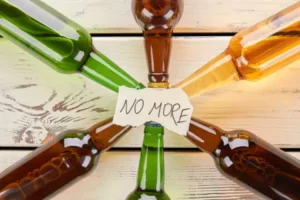
Balance honesty and inspiration for an effective narrative that shows challenges and successes in recovery. It inspires change, promotes healing, and cultivates community in addiction recovery settings. Group therapy is a powerful tool that many people turn to for support during their addiction recovery journey. Because it fosters a sense https://ecosoberhouse.com/ of community and belonging, which is essential when tackling the tough road of recovery. Imagine being able to connect with others who share similar experiences, struggles, and triumphs.
Does VA Cover Addiction Treatment in Kansas?
- Butch also maintained a private practice, specializing in family of origin work and addiction populations.
- Sharing stories with those who have gone through similar challenges builds genuine relationships and encourages sobriety.
- This may not sound like the light at the end of the tunnel, but it is the closest that some will ever get.
- Therefore, we suggest that you discuss this with your counsellor, healthcare provider or sponsor before taking the step of speaking openly about yourself in front of others.
- Cindy has more than 16 years of experience in non-profit fundraising, most recently serving as Development Officer for United Methodist Higher Education Foundation.
As a result, when telling your story in AA, keep an eye sharing your story in recovery on the time. Give yourself enough time to get everything off your chest, but don’t forget others need to share too. Advocacy and support are indispensable to the recovery journey. Comprehensive treatment plans often include therapy, medication, and support groups, aiming to tackle both mental health and addiction head-on. Often, those who struggle with substance use disorders are also battling mental health issues like depression, anxiety, or trauma. By opening up about their experiences, individuals provide hope and encouragement, showing that a life of recovery is not just a dream but a tangible reality.
How My Brain Tumor Reinvigorated My Life’s Work Brain Tumor Survivor Story
When others hear your story, they may feel encouraged to share their own experiences. This creates an environment where everyone feels safe to talk about their journey, which can be healing for everyone involved. Throughout your post-addiction life, you will probably have many opportunities to share the insight you gained during your recovery journey.
How to Write and Share Your Story

Discover what a dual diagnosis treatment program entails and how it supports recovery from co-occurring disorders. Discover how to support a baby Oxford House born addicted to opioids and understand the impact of Neonatal Abstinence Syndrome. Finding and nurturing passion during recovery takes patience and practice. Embracing this evolution, rather than rushing through it, creates an enriching experience. There may be times when you are simply not ready to talk about your story—and that’s okay! Coming into recovery, we all needed hope and a reason to recover.

Support
When sharing a recovery story, timing and emotional stability are musts. Support groups and sponsorship can provide guidance and encouragement. It’s not just limited to AA but also to online platforms that promote hope, education, and connection. Recovery stories emphasize the 3 steps of recognizing addiction as a problem, seeking rehab treatment and rebuilding life. Storytelling is a powerful marketing tool used by rehab centers and treatment programs.
The Key Components of a Quality Recovery Story
The relationship between mental health and addiction is a vicious cycle. For instance, someone with depression might turn to substances to numb their emotional pain, only to find that their depression worsens. My experiences with depression stemmed from my compounded grief process and PTSD, but things started to change was when I joined peer support programs.

By offering support, individuals can strengthen their sense of purpose, which is vital for maintaining their own recovery. Volunteering or mentoring can create a gratifying loop of support and connection, enhancing personal growth while fostering a sense of belonging within the community. Embracing this reciprocal relationship encourages an uplifting atmosphere where everyone can thrive. Participating in activities that align with personal interests can enhance the recovery experience significantly. Whether it’s a local art class, a book club, or a group yoga session, engaging in shared interests allows individuals to connect over common passions.
- But avoid bringing up “war stories” to impress, shock, or compete with others in the room.
- As past chair of NAATP’s Ethics Committee, Jay was instrumental in important changes made to the organization’s code of ethics.
- These true stories are not just tales of triumph; they are lifelines for those still in the throes of their struggles.
- This means sharing the parts of your story that you are not proud of.
- It’s important to acknowledge that not every group will resonate with you.
Explore the risks of mixing lisinopril and alcohol side effects, from blood pressure impacts to dehydration. Discover how a heroin addict started by prescription painkillers, revealing the stark path to addiction. Unearth the signs of dopamine deficiency symptoms and learn how to shift from apathy to action. Dive into the dangers of purple heroin, its impact on health, and the battle against its regional spread. Explore how drug use could lead to hair loss, its reversibility, and treatment options for recovery.
